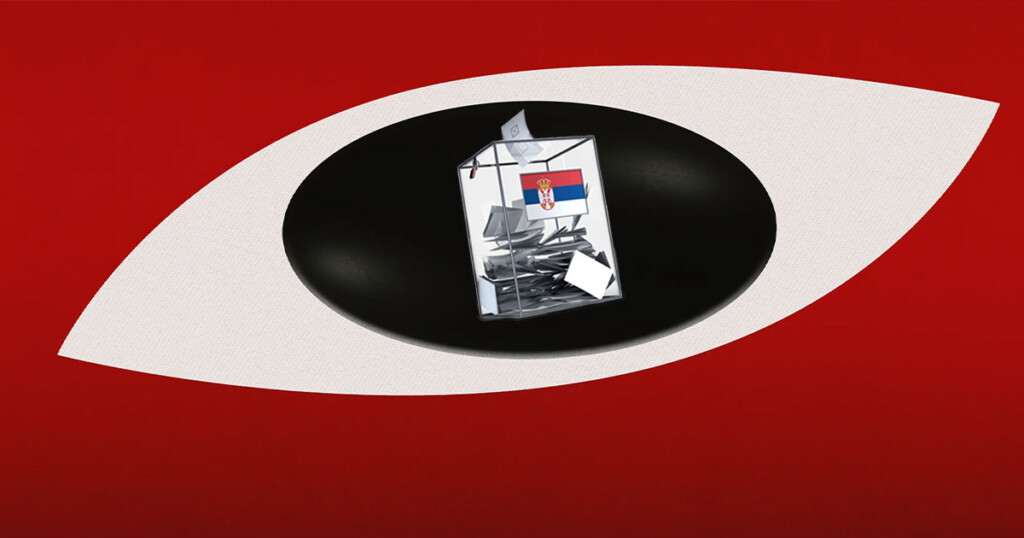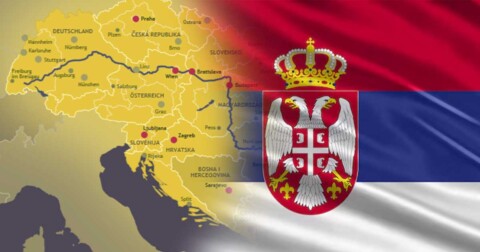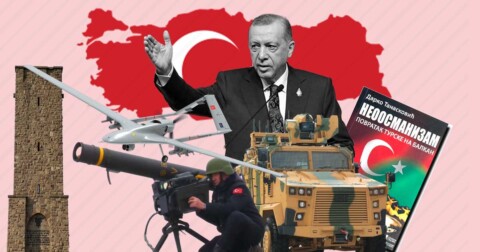The National Assembly of the Republic of Serbia adopted, on 7 November 2025, a law that changes the very essence of the electoral process. For the first time in the political history of any country, and at the request of the European Union, two non-governmental organizations have entered the state body responsible for supervising the electoral register and the electoral process, with the same powers as the other state members. In other words, the credibility of the elections will depend on the decisions of civil society actors financed by foreign sources. Although these changes were explained as a need to “align with European standards,” this is a precedent unknown in any European country.
THE LAST WORD BELONGS TO THE NGOs
The newly formed Commission for the Unified Electoral Register consists of ten members – five representing the government, three coming from the opposition, and two representing the NGO sector. The distribution of positions, although forced by the imposed obligations of the EU integration process, appears acceptable considering the inclusion of all sides. What, then, is the problematic part?
Specifically, for a decision to be adopted, at least 7 out of 10 members must vote in favor. But there is another condition: among those 7 votes, at least two must come from each group. In other words, no decision can pass without the votes of the NGO sector.
In the countries of the European Union, non-governmental organizations have the right to observe elections, publish reports with recommendations, and point out irregularities. In Serbia, the situation is entirely different. Faced with EU conditioning, Serbia accepted that representatives of the civil sector connected to Western services would influence a process that determines the legitimacy of the government.
With this law, Serbia has not aligned its electoral process with European standards. Instead, under pressure from Brussels, and amid a widespread social and political crisis, it accepted a new, hybrid model of oversight.
THE SUPERVISOR WITH MILLIONS IN HIS ACCOUNT
The European Union, in cooperation with the OSCE, recommended in 2022 changes to the composition of the electoral commission, the inclusion of independent members, as well as legal guarantees of equal media access and the prohibition of using state resources during campaigns. But what it omitted as a recommendation was the method of financing “independent observers.”
CRTA and CESID, two NGOs that have operated in Serbia for more than two decades, are anything but independent observers. Specifically, organizations wishing to nominate their representatives may do so only if they have been accredited by the Republic Electoral Commission at least three times in three electoral processes. And although both CRTA and CESID are, in practice, extended arms of Brussels, they are the only two NGOs that meet the requirements prescribed by the new law.
The NGO CRTA has been active in Serbia for more than two decades. Its founder, Vukosava Crnjanski, began her career in the late 1990s in the youth wing of the Civic Alliance of Serbia, which she once described as an NGO among political parties. Crnjanski, however, moved from formal politics into propaganda and founded the first form of fact-checking. This first led to the creation of the Liberal Network (Linet), a non-governmental organization focused on media freedom, preventing hate speech, highlighting cases of conflict of interest, advocating limitations on mandatory military service, and engaging students at faculties and universities, which she described as “islands of freedom” during the Milošević era. In 2008, inspired by fact-checking models used during the presidential campaigns of John McCain and Barack Obama, the team introduced its own platform “Istinomer” (“Truth-o-meter”) and began checking facts during elections in Serbia.
The climax of her work was the transformation of Linet into the Center for Research, Transparency and Accountability (CRTA) in 2010.

CRTA came into the public spotlight after Serbian police entered the premises of this NGO—which seeks to act as a controller and to decide on the legitimacy of the electoral process—on the order of the Higher Public Prosecutor’s Office in Belgrade, due to the existence of elements of the criminal offense Abuse of Position of a Responsible Person and the criminal offense of Money Laundering under the Criminal Code.
According to available data, CRTA’s budget for 2022 amounted to around 2.8 million euros. The main donors are the Swedish agency SIDA, USAID, the Rockefeller Brothers Fund, the embassies of the United Kingdom, the Netherlands and Germany, as well as the EU.
That CRTA has no reason to worry despite everything is shown by its final financial report, where this NGO ended the year with a surplus of more than 140 thousand euros. These are official figures that do not include additional grants, projects, and funds currently under investigation.
Over the past twelve months, CRTA has been actively involved in protests organized primarily by representatives of the civil sector—that is, NGOs and the pro-Western opposition. They officially supported the blockade narrative and the formation of the student list.
All this information, publicly available, in no way qualifies CRTA as an NGO capable of providing an independent member.
OBJECTIVITY SUPPORTED BY FOREIGN DONATIONS
The founder of CeSID, Marko Blagojević, is well known to the public in Serbia, dating back to the student protests of 1996 and 1997, and later as the founder of CeSID.
Blagojević has been socially and politically active since 1993. During the student protests of 1996 and 1997, he was a member of the Main Committee and the Legal Committee of the Student Protest. The following year, 1997, he was one of the founders and the spokesperson of the first Student Parliament of the University of Belgrade. That same year, together with a group of colleagues and professors, he founded the Centre for Free Elections and Democracy, the first domestic organization for election monitoring, and in 2005, together with a group of colleagues, he founded CeSID d.o.o., one of the leading domestic agencies for public opinion research and analytics.
Although Blagojević, together with Đorđe Vuković, is still the owner, Bojan Klačar has taken the position of executive director of this NGO. The only difference between CRTA and CeSID is that the members of CeSID, as well as the organization itself, have been more cautious when commenting on events in the streets, thereby maintaining—at least formally—a semblance of objectivity. However, when it comes to external partners and sponsors, there is no difference.
CeSID is financially supported by a larger number of international donors than CRTA.

It should certainly not be forgotten that CeSID was the first organization in Serbia to apply the system of parallel vote counting, and that it was based on its assessment that the victory of Vojislav Koštunica was declared, even though the votes, as was later determined, were close but still tipped in favor of Slobodan Milošević.
FROM MONEY TO POLITICAL POWER
Step by step, and without breaking a single formal rule, the European Union managed to merge three separate structures: the recommendations of international observers, financial support for the NGO sector, and the conditioning of the Serbian state through EU funds—that is, through progress in the process of EU integration. First came the OSCE report which, in a technical form, stated that the voter registry was not sufficiently transparent and that no independent control mechanism existed. Then the European Parliament, in its February 2024 resolution, turned these recommendations into a political condition. Finally, the amendments to the Law on the Unified Voter Registry from November 2025 transformed the condition into an institution, with a clearly defined role for the NGO sector—not as observers, but as a key figure within the system itself.
And so we arrive at the point where the European Union does not directly control the voter registry, nor can it alter or delete it through its civil sector linked to Western services, but it does control the outcome.
If the registry is not updated or if the commission fails to reach a quorum—in other words, if CRTA and CeSID, meaning both NGOs, do not sign the report—the European Union has a formal basis to conclude that the recommendations “were not implemented,” that democracy “was not improved,” and that Serbia “did not fulfil the conditions.” The next step is freezing negotiation chapters, blocking accession funds, and delaying any further political progress. In other words, if there is no commission report, there is no EU—not in the sense of final membership, but in terms of money and political legitimacy.
The essence is that the state formally remains the owner of the electoral process, but the NGOs become the owners of the key. Their “yes” or “no” determines whether the elections have legitimacy, which means that the electoral process is no longer a sovereign decision of the institutions, nor an expression of the will of the people, but a product of an international–NGO consensus. One signature from them becomes heavier than all parliamentary procedures, all ballot boxes, and all candidate lists.
NEITHER CONSTITUTION, NEITHER LAW, NOR THE PEOPLE
Under pressure from the European Union and for the sake of opening negotiation clusters, Serbia adopted constitutional amendments in 2022. The judicial system, in which professional NGOs were funded by the same “partners” and thereby consolidated under one umbrella, gradually came entirely under the control of Brussels and other Western centers of power—dependent on foreign influence and independent from the state.
Thanks to the constitutional changes that came as yet another recommendation from the European Union through “harmonization,” the prosecutorial and judicial systems have, over the past 12 months, brought Serbia to the brink of civil conflict.
NGOs have not been institutionalized within the judiciary, but the founders and members of their managing boards have completely taken over the justice system. Putting an end to the anti-state and above all anti-constitutional arbitrariness of this renegade structure would mean opening Pandora’s box, yet allowing its further operation could be fatal for the state.
Although it does not operate under the same mechanism, the essence of the amendments to the electoral law is very similar. In this model, institutions lose their primary function. Instead of the state guaranteeing the regularity of elections, it is now in a position where it must prove that regularity has been approved by a structure that is not part of the state. Decisions are no longer made by the Constitution, nor by law, nor by a state body—and worst of all, not even by the people. The final signature is placed by NGOs. If that signature is withheld, the EU has justification to claim that “electoral conditions were not met,” which at the same time constitutes both a diplomatic message and a political sanction.
Such a construction creates a situation in which the election result becomes a secondary matter. The main question is no longer who won, but who recognized the result. Victory no longer stems from the will of the citizens, but from the will of the NGO sector. This represents a shift of gravity from sovereignty to approval, from constitutional procedure to an international mechanism of verification.
States do not collapse overnight, nor do they fall because of a single decision. They deteriorate gradually, when the borders of sovereignty are moved imperceptibly, under the pretext of “aligning with standards,” when institutions accept surrendering part of their authority in favor of something called “partnership,” and only much later—usually when it is too late—they realize that they have exchanged their constitutional jurisdiction for someone else’s approval.





